#25. Close-Call Experience
In 1994, an orthopedic surgeon named Tony Cicoria may have been close to solving the mystery after being struck by a bolt of lightning. Here's what happened to him.
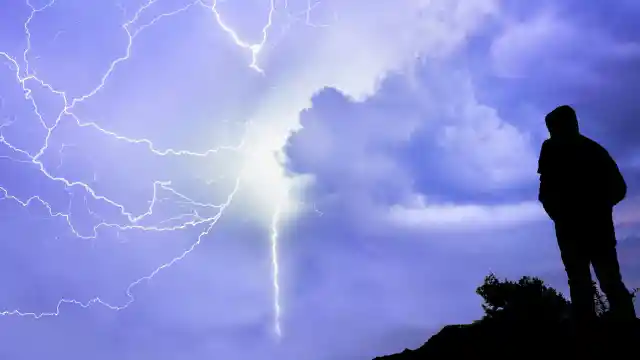
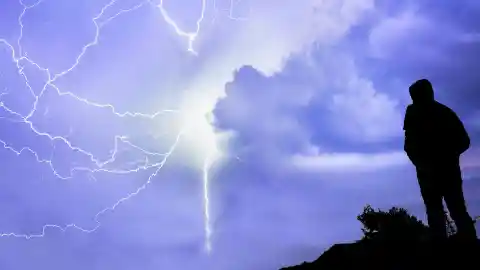
When the nearly fatal bolt struck him, he felt himself fly backward, and moments later, he supposedly turned around to find his body lying in the floor behind him.
He Saw What Was Happening To His Body
Cicoria reported that he stood there watching a woman perform CPR on his body before floating up a flight of stairs to watch his children play in their rooms. “Then I was surrounded by a bluish-white light,” explained Cicada.
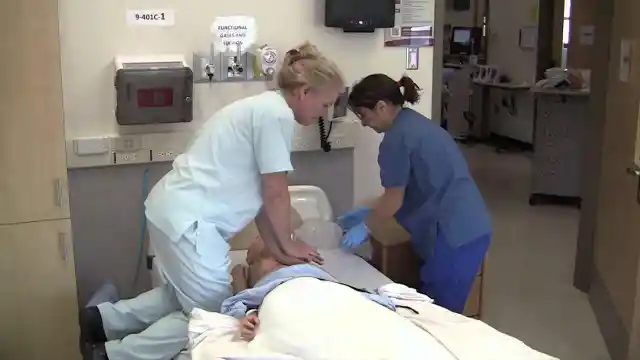
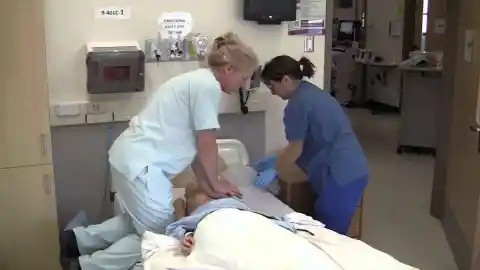
“An enormous feeling of well-being and peace… The highest and lowest points of my life raced by me. I had the perception of accelerating, being drawn up… Then, as I was saying to myself, 'This is the most glorious feeling I ever had',slam! I was back", he said.
Death Is A Process
Several experts have commented on Cocoria's testimony. Dr. Sam Parnia has studied near-death experiences for years and concluded that Cocoria's encounter was not an uncommon one.
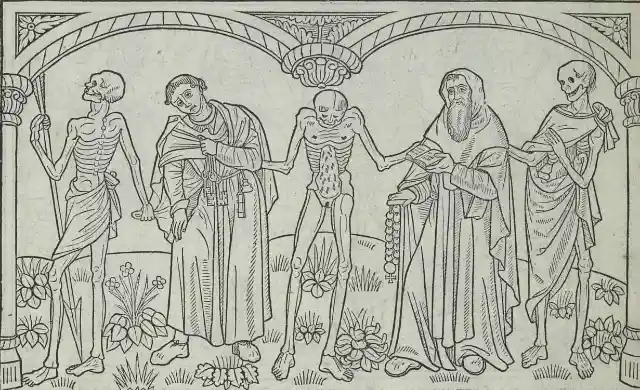
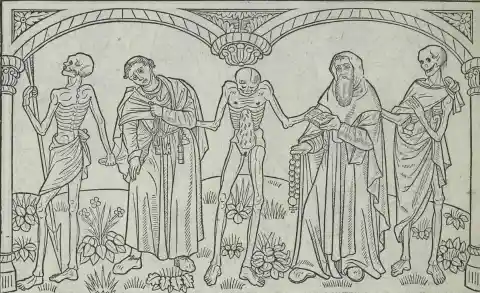
“Death is a process. It is not a black and white moment”, Parnia said. In recent years, doctors like Parnia and close-call survivors like Cicoria have helped unveil the mystery that life after death poses. Here's what some other professionals have commented on the topic.
What Happens To The Body
There is no way of fully understanding the feeling of dying until we experience it for ourselves, but we do know what happens to the human body right before and after death.
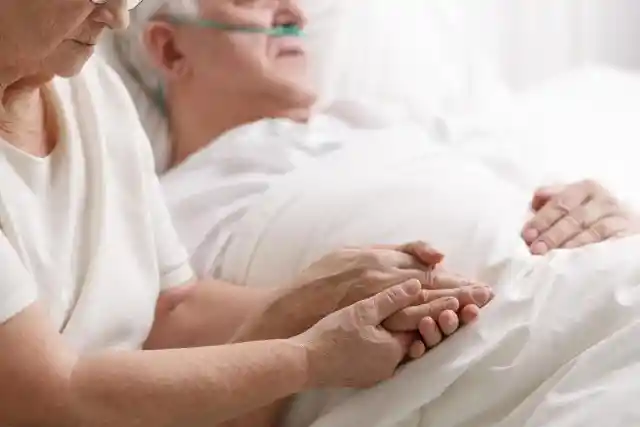

According to Dr. Nina O'Connor, A person's breathing will first become irregular and unusually shallow or deep. Then, their breath begins to sound like a rattle or a gurgle. But why does this happen?
The Death Rattle
According to doctors, this sort of choking sound happens because the person isn't able to cough up or swallow secretions in their airtracks.
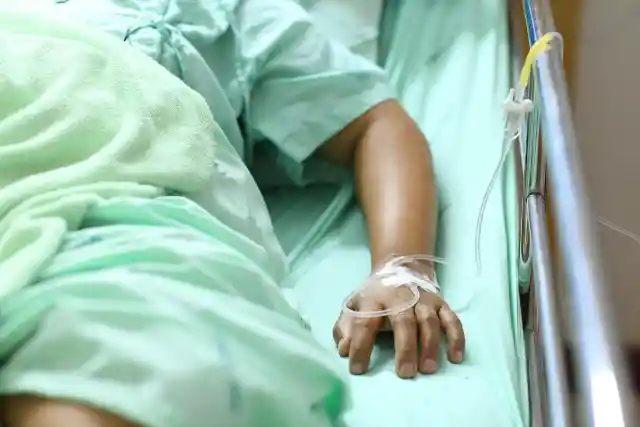
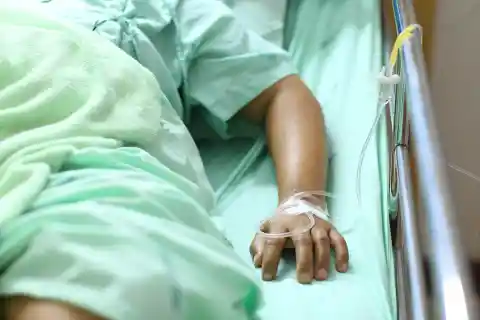
“All of it comes from the process of the body slowing and shutting down,” O'Connor explained. For obvious reasons, this sound is often called “the death rattle”.
Every Muscle Relaxes
Muscles relaxing may be the reason people moan or sigh, as it causes any excess air to be released from the lungs and into the throat and vocal cords. But what happens to your body's muscles when you die?
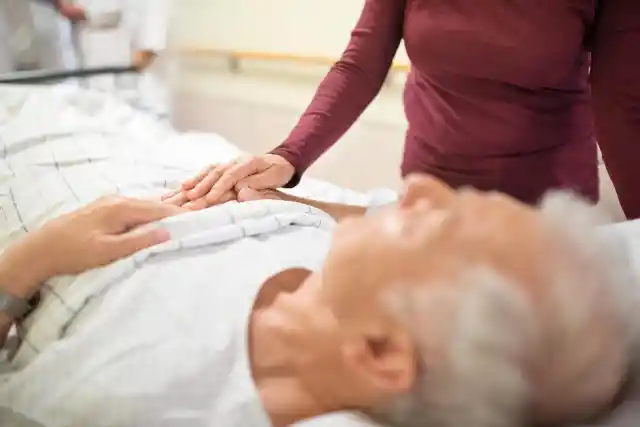
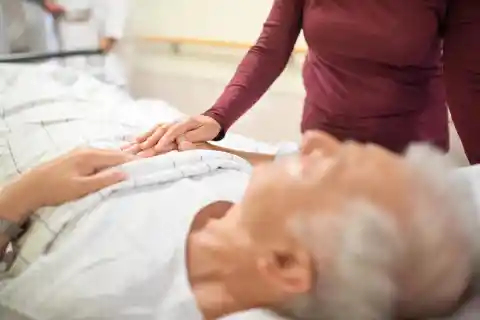
After you die, just as the body's muscles relax, the pupils dilate, the jaw opens, and the skin sags. Any urine or feces in the body are released, too.
Algor Mortis
As you can see, death is a process, meaning that it doesn't happen in an instant. In fact, some researchers claim that our brains can operate up to ten minutes after the heart stops beating.
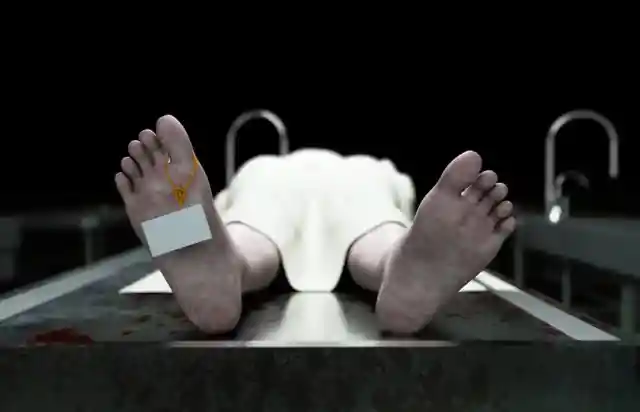
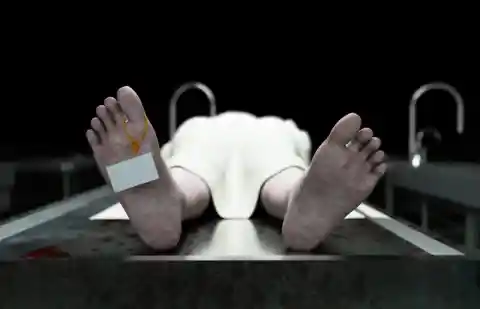
Within the first hour after death, the body experiences algor mortis or the “death chill.” This means that the corpse will cool from its normal temperature to the temperature of the room. What happens then?
Livor Mortis
After a couple of hours, the body will begin to experience livor mortis, which means that blood will begin to pool in areas of the body that are closest to the ground due to gravity.
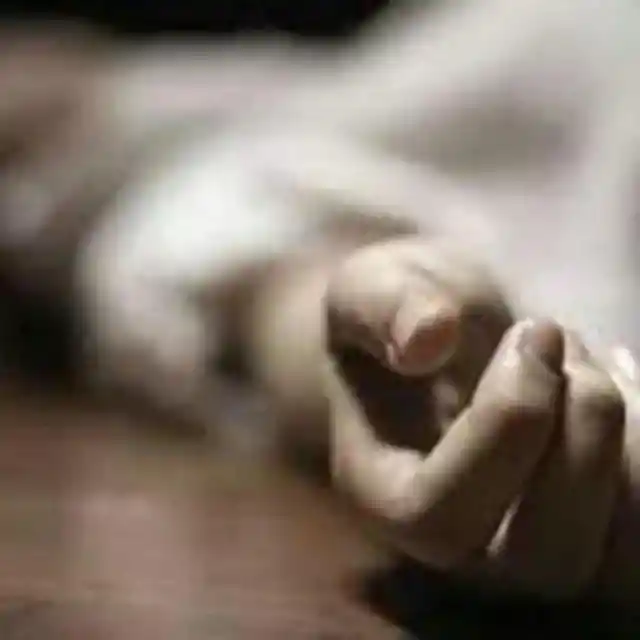
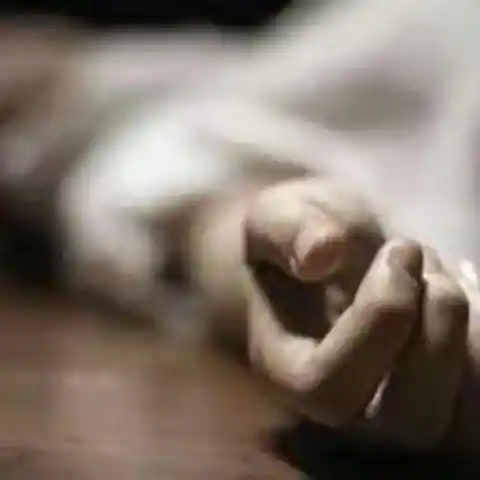
If the body remains in the same position for hours, these body parts will look bruised while the rest of the body will grow pale. What happens then?
Rigor Mortis
A few hours after death, limbs and joints will stiffen during a process called rigor mortis. The body will become so stiff that the knees and elbows will be flexed and the fingers and toes may appear crooked.
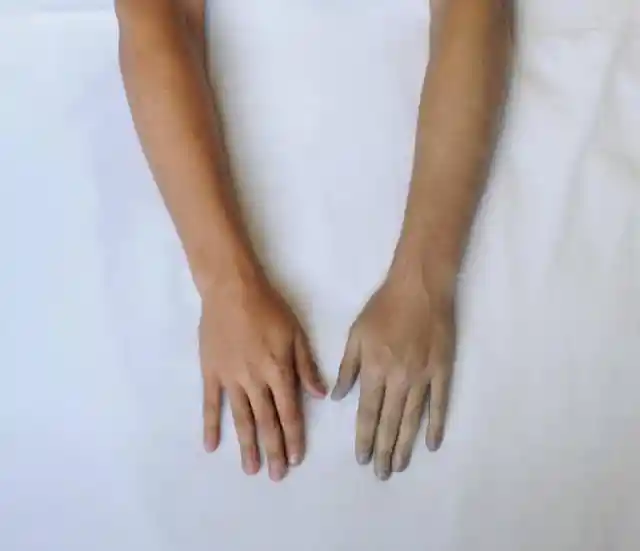
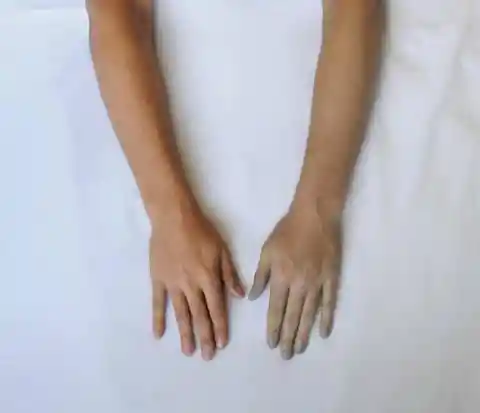
But the process of rigor mortis will star to reverse after 12 hours. This happens as a result of the decay of internal tissue and it lasts between one and three days.
Vampire Stories Were Inspired By Corpses In Rigor Mortis
During this process, the skin begins to tighten and shrink, which creates the illusion that the hair, nails and teeth have grown. Yikes!
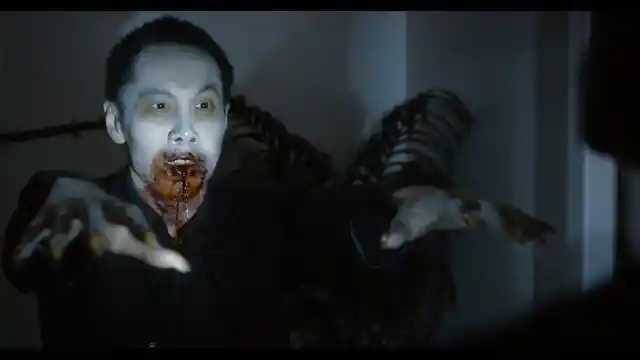
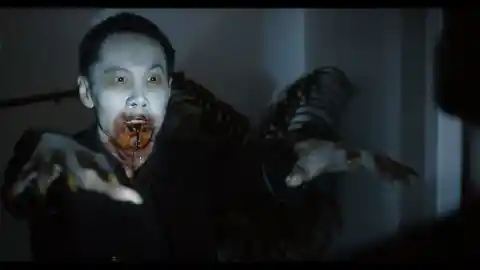
This also creates the illusion that the blood has been sucked from the corpse. Did you know that bodies in rigor mortis have inspired some of the most famous vampire legends of medieval Europe?
It's Not Just The Body
Aside from the scientific study of the process of decomposition of human bodies, humans have always wanted to know what dying feels like.
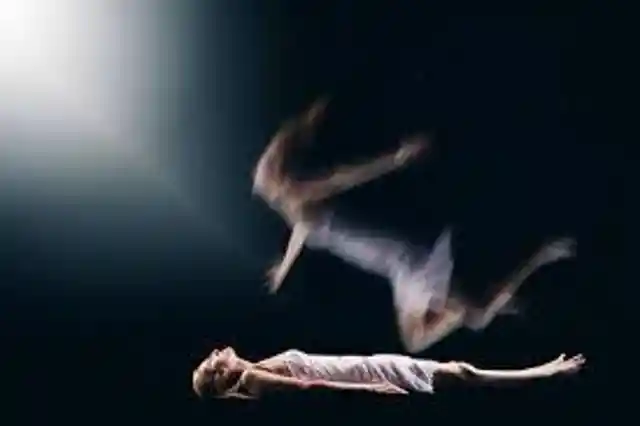

Since most of us won't ever go through a close-call experience, we are left to wonder: what does it really feel like to die? Here's what another doctor has to comment on the issue.
What It Feels Like
According to general practitioner Dr. Clare Gerada, death may sometimes feel like having to use the bathroom. This theory may sound a bit far-fetched, but let's hear the woman out.
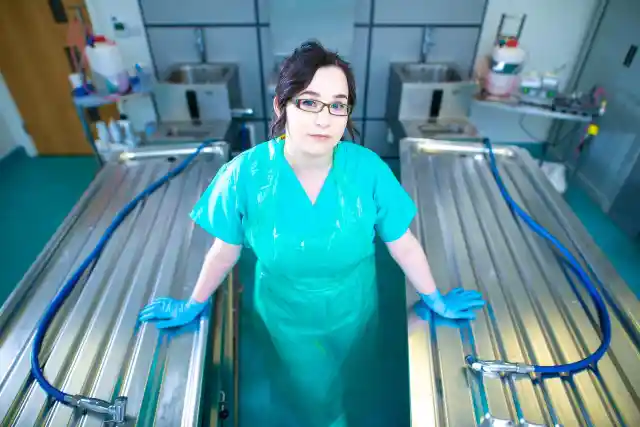
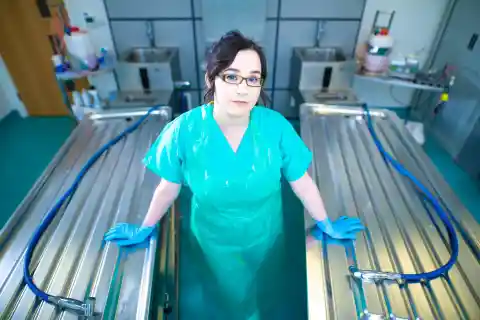
“Most people will die in bed, but of the group that don't, the majority will die sitting on the lavatory. This is because there are some terminal events, such as an enormous heart attack or clot on the lung, where the bodily sensation is as if you want to defecate”, the doctor said.
Death Can Be Slower
If a person doesn't die from a terminal event and instead dies from a long-term illness, then in that case dying can feel a bit like depression.
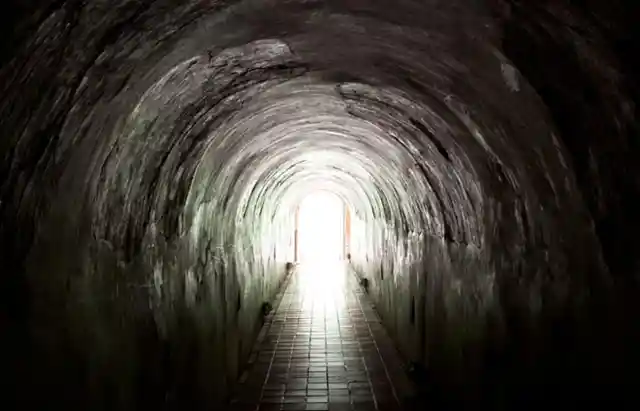
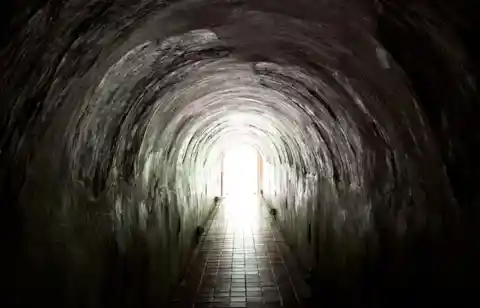
Toward the end of their lives, people will most likely suffer from fatigue or lack of energy because they tend to eat and drink less. This can cause a person to move, talk, and think slower than usual.
Profound Fatigue
In other words, when death awaits you, your body grows so week that you can't even gather enough strength to lift your head or move your extremities. That doesn't sound good.
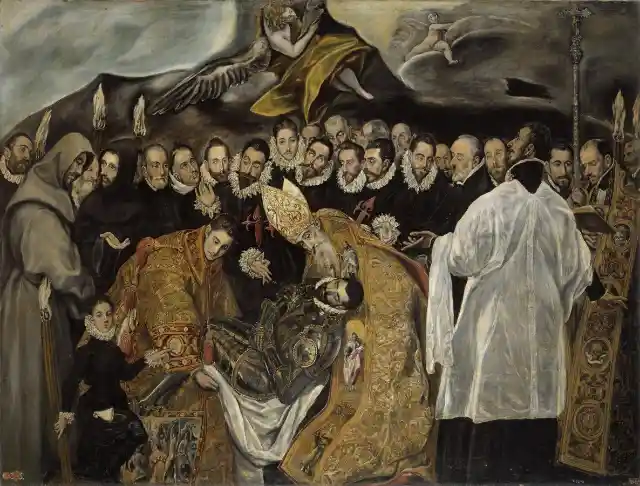
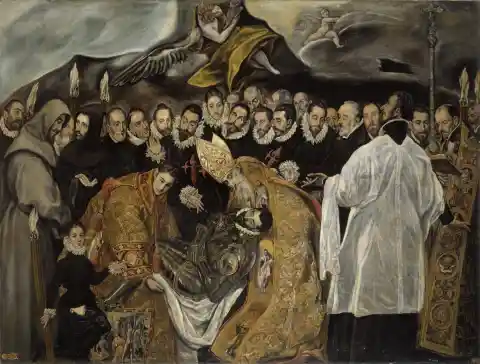
Dr. O'Connor added that “the physical fatigue and weakness (of people near the end) is profound. Simple things, like getting out of bed and into a chair could be exhausting —that could be all of someone's energy for a day.”
What Happens To The Body
Since it's practically impossible for dying people to express how they're feeling during the event, how it really feels like when you die is a matter that will always remain shrouded in mystery. However, what we do know is what happens to the body in a practical sense.
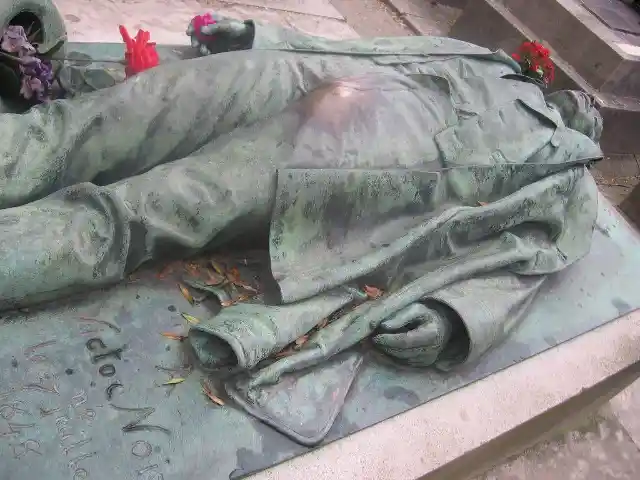
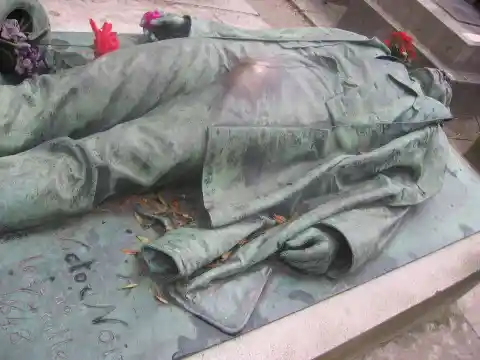
Up until now, we've gone through some of the physical changes that our bodies experience after death, but one thing remains unanswered: how do people do with our bodies after we die? Let's take a look at some of the main ceremonies and rites that take place around the world.
Embalming
In the West, bodies are typically embalmed after death. However, did you know that the process of embalming dates back to the ancient Egyptians — and maybe even earlier?
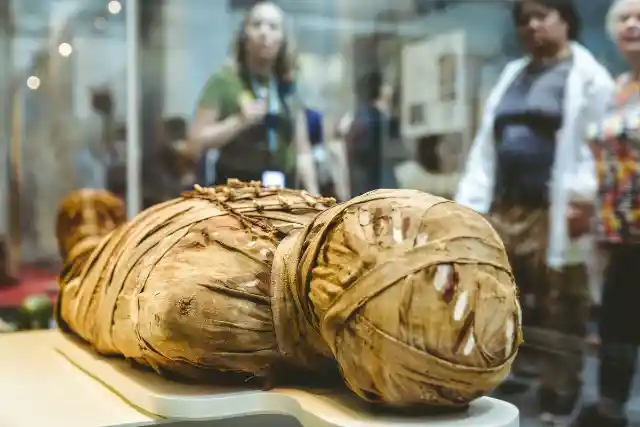
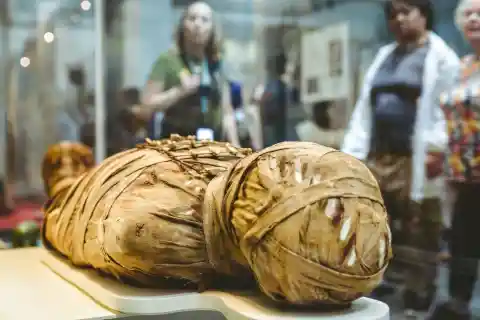
Some cultures mummified the dead believing that their soul could eventually return to the corpse. Also, some of the world's most studied civilizations, such as the Aztecs and Mayans, also had a history of mummifying their dead. But what does this process consist of?
The Process
Modern embalming is a laborious process. Once a doctor has certified that a person is dead, the corpse is transported to a forensic who can request a postmortem exam. Familiar with the term?
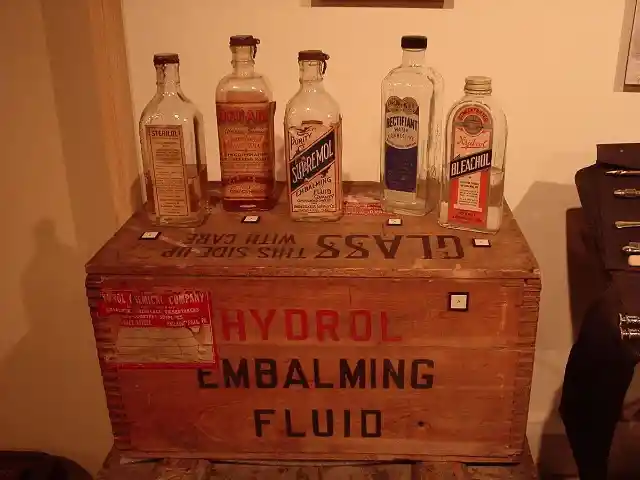
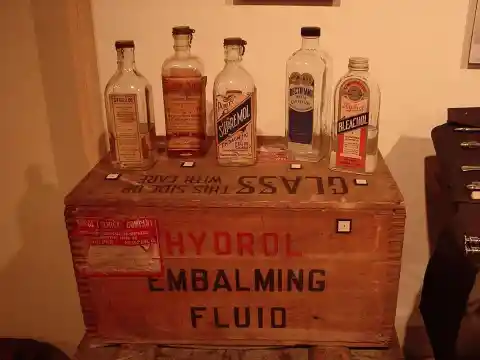
Postmortem examinations are carried about by pathologists, who are in charge of performing an external and internal examination of the body. During an internal examination, the pathologist removes the organs to inspect them and then places them back in the body.
Preparing The Body For Burial Or Cremation
The body is then drained of all its fluids, which are replaced with formaldehyde or some other preservative. The nose and throat are packed with cotton wool and the mouth is stitched and closed from the inside. The hair is washed, the nails are cleaned and cut, and plastic caps are applied under the eyelids to help them hold their shape.
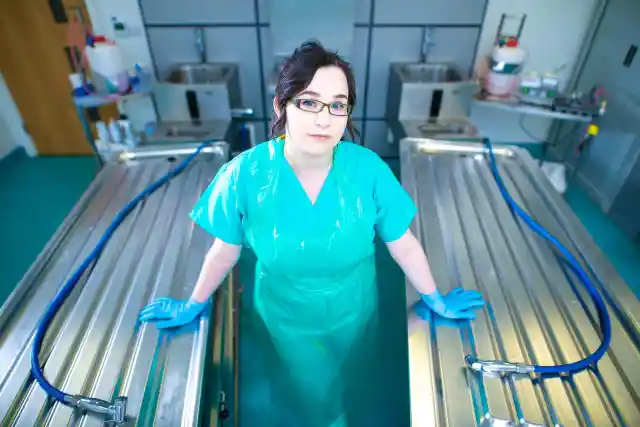
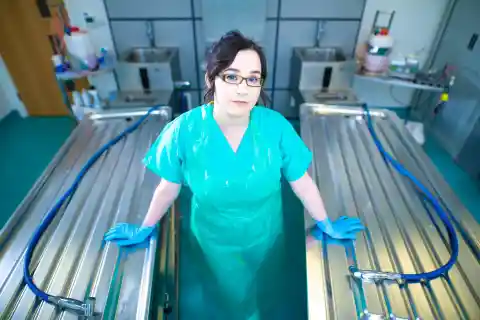
Finally, cosmetics are applied to the skin and face. Once embalming is done, the body is dressed and placed in a coffin. Depending on the person's preference, culture or religion, the body can either be buried or cremated.
Death Rituals In Non-Western Countries
It's a widely known fact that the death rituals are different throughout the world. For example, the Toraja people in Indonesia believe that the dead are never really gone, so they aren't so quick to dispose of their dead ones' bodies. Can you guess what they do with corpses?
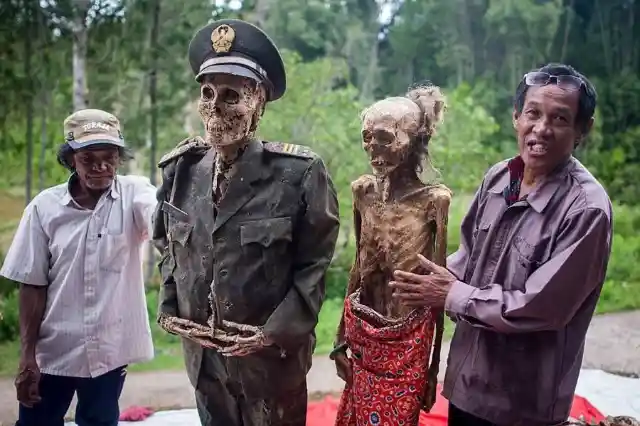
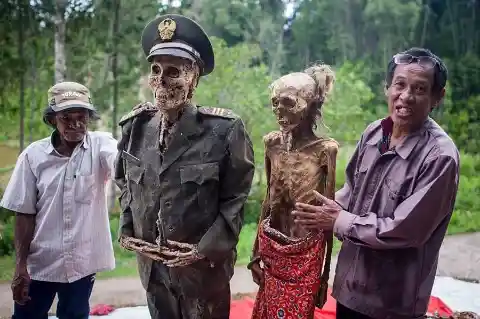
When someone dies, their family cares for their body until the funeral is prepared, which can take from weeks to months or even years. They treat the deceased as if they were simply sick. Once the funeral is ready, the village honors the dead with prayers, dancing, and animal sacrifice. Only then do they take the body to its tomb.
Jewish Burials
On the other hand, Jews don't embalm their loved ones, nor do they bury them quickly as soon as they're declared dead. Can you guess why?
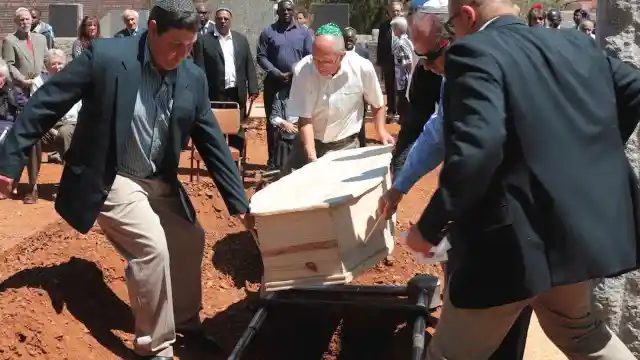
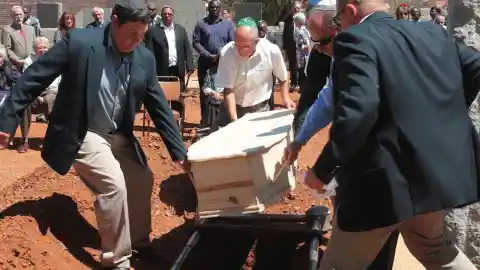
“According to the texts we read in Genesis, with Adam coming from the Earth we give our bodies back to the Earth and God —that's why we bury our dead", rabbi Corey Helfand explained.
Egyptian Mummies
The ancient Egyptians believed that the dead had to pass through the underworld first, and only then could they rest in the afterlife. But before getting their rest, their journey would be riddled with obstacles. Therefore, they buried their loved ones with scrolls inscribed with spells to protect and guide them to their final resting place.
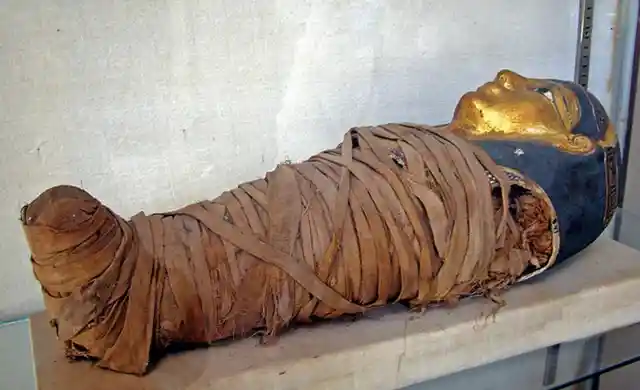
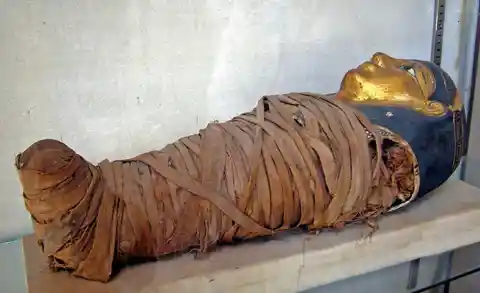
Archaeologist have found bodies buried with maps, which were supposed to be of help to direct the dead in the afterlife. But as interesting as this is, one last question needs to be addressed. We've talked about what happened to the dead bodie, what happens to the being and their soul?
Near-Death Survivors Can Fill The Gaps
In 1988, Jane Syemour went into anaphylactic shock. Her mind stayed aware while her body began to shut down. When she described her experience, she found it was very similar to reports from others who have almost died.
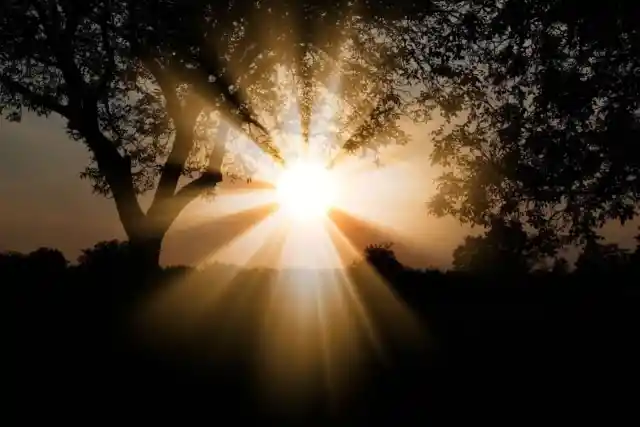
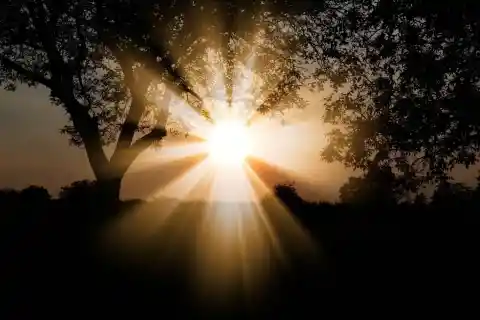
“I had the vision of seeing a white light and looking down and seeing myself in the bedroom with a nurse frantically trying to save my life and jabbing injections in me, and I'm calmly watching this whole thing,” said Jane Seymour.
The Question Remains Unanswered
Some people have taken Seymour's testimony as living proof that our souls lift from our bodies after we die. Scientists, however, are logically skeptical. They attribute these reports of out-of-body experiences to anything from lucid dreaming to a lack of oxygen in the brain.
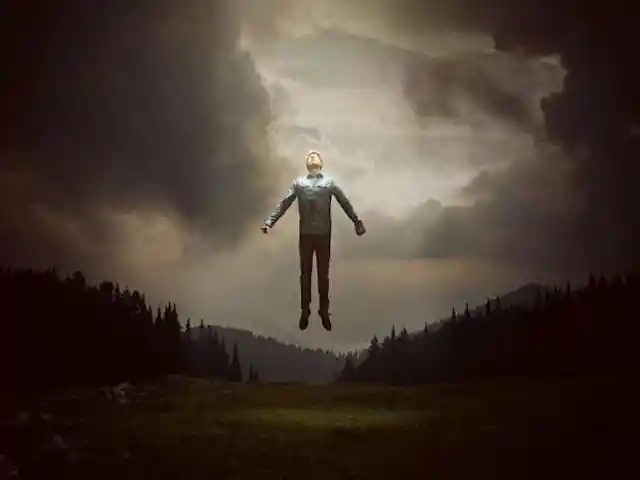
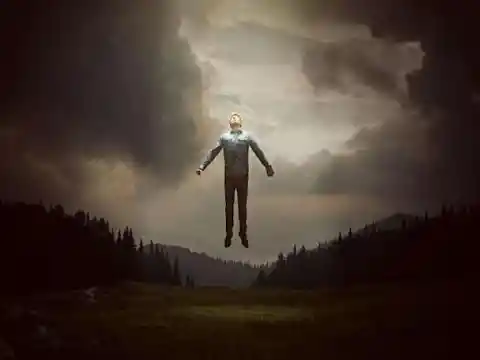
We know there's not enough research, but the thought that our consciousness floats on as our bodies expire is somewhat comforting. What do you think happens after we die?